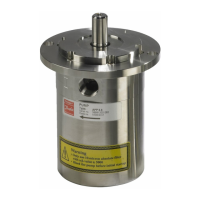User manual Installation, Operation and Maintenance APP Pumps (APP 1.5-3.5)
9
180R9267 / IOM APP Pumps - v02 / 09.2013
4. Arrival inspection,
transportation,
handling, lifting and
storage
3.7 Filtration
(10µm absolute [ß
10
≥ 5000])
Requirements are specied in appendix 1, Data
sheet and in appendix 2, Instruction.
Danfoss recommends not to build a lter bypass
function or to use lters with an integrated
bypass. If the above recommendation is not
followed the warranty for the pump will
automatically become void.
It should be possible to monitor the condition of
the lter via the dierential/delta pressure across
the lter.
Using insucient ltration or a lter bypass
can cause a failure or decreased service life of
the pump.
3.8 Properties of water
It is recommended NOT to use the pumps in feed
water concentrations higher than 50,000 ppm
TDS without consulting your local Danfoss pump
distributor.
3.9 Air bubbles
Large bubbles in a pressurised RO system can
result in damage to piping, equipment and the
pump.
All air must be bleeded from both the low-
pressure and high-pressure side before the RO
system is pressurised. Special consideration
should be given in order to minimize air bubbles
in the feed ow. Air bubbles can cause cavitation.
3.10 Chemicals
The pump should not be exposed to any
chemicals as it can result in damage to piping,
equipment and internal parts in the pump.
4.1 Arrival inspection
The pump is packed in a cardboard or wood box
with plugs in the port connections to protect the
pumps from damage during transportation.
When the shipment has arrived it is important to
check the pump for any damages. The name
plate/type designation must be in accordance
with the delivery note and your order.
In case of damage and/or missing parts, a report
should be documented and presented to the
carrier at once.
4.2 Warning
Before any lifting operation is performed,
environmental conditions must be taken into
consideration (Ex-rated areas, wind speed, wet/
dry conditions, lifting height, etc.).
4.3 General safety information
Personnel involved in lifting and transporting the
equipment (see Safety, chapter 2) must be
trained in handling and in safety procedures for
lifting heavy loads. Many of the pumps and
pump units weigh more than 20 kilos, which
requires lifting slings and suitable lifting devices;
e.g. an overhead crane or industrial truck to be
used as minimum.
4.4 Transport and handling
Small pumps which have a weight below 20 kilos
(weight can be found in appendix 1, Data sheet).
can be handled by hand if they are not mounted
together with an electric motor. The weight of a
small pump with a motor will be above 20 kilos.

